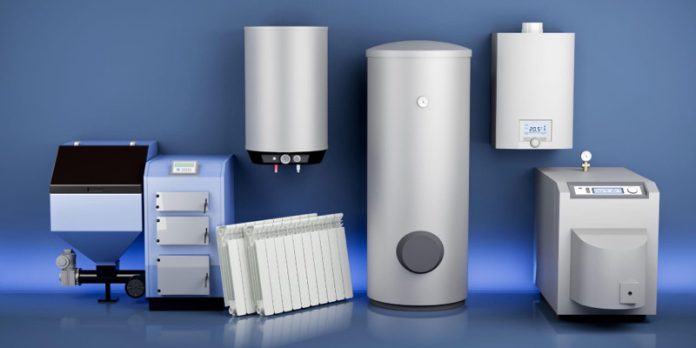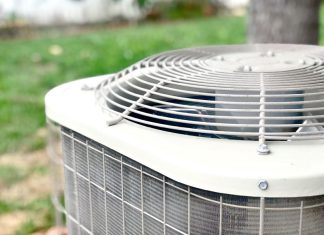Ensuring your home is adequately warmed during the bitterly cold winter months is essential, not only for comfort but also for maintaining health and well-being. Consequently, the importance of installing the most suitable heating system for your dwelling cannot be overstated. In Australia, two main heating systems feature prominently in residential properties: gas and electric heating. This comprehensive article aims to delve into heating system comparisons, contrasting these predominant heating types to guide homeowners towards informed decisions based on their unique needs and contexts.
Understanding Gas Heating
At first glance, the mechanism behind gas heating might appear complex. This form of heating operates via a chemical reaction between oxygen and flammable gas – typically natural gas or propane – generating heat. The warmth produced is often circulated throughout the home via a central furnace, creating a cosy and inviting environment.
Diverse types of gas heating systems are available in Australia, catering to various needs and requirements. These include convection heaters, which heat the air directly; flued heaters, which include a flue or chimney for emission dispersion; wall heaters that are space-efficient; and space heaters that are portable and great for smaller areas.
Installing a gas heating system can be intricate and typically necessitates professional input. Specifically, the installation process involves establishing a connection of the gas heater to a gas line, which demands precise implementation. Several brands have made their mark in the gas heating sector, such as Rinnai, Vulcan, and Dyson, each of which offers unique options to cater to consumers’ varying preferences.
The Benefits of Gas Heating
Gas heating provides substantial benefits. Firstly, it is cost-effective. In comparison to electric systems, gas heating has significantly lower operational costs due to the lower price of gas relative to electricity. The power of gas systems is noteworthy too, being able to warm large expanses quickly and efficiently. This makes gas heaters especially suitable for larger homes that require substantial heating.
During blackouts, gas heating boasts superior reliability, continuing to provide warmth even when electrical power is unavailable. From an environmental perspective, gas heating systems also score favourably, having lower carbon emissions when compared to electric heating, making them a more sustainable choice.
The Drawbacks of Gas Heating
Like anything, gas heating systems also have their cons. Foremost, these systems often entail higher upfront costs, particularly when considering potentially high installation expenses. Once installed, gas heating systems carry safety risks, including potential carbon monoxide leakage if not installed and maintained properly.
Heat loss in vented systems can be significant, leading to reduced heating efficiency and increased heating costs. Furthermore, gas heating systems require regular professional servicing and check-ups to remain efficiently operational and safeguard against possible safety risks.
Understanding Electric Heating
Transitioning to electric heating, the system basis is fairly straightforward. Here, electricity is used to heat conductive material – typically metal or ceramic – and this heat is then dispensed across your home. Electric heating systems found in Australia include storage heaters, which store heat during off-peak hours; panel heaters, which are slim and wall-mountable; radiant heaters, renowned for their immediate warmth and cost-efficiency; and fan heaters, loved for their portability and versatility.
Electric heating installation is generally simpler compared to gas heating systems, usually requiring only an accessible power outlet. Brands such as De’Longhi, Goldair, and Dyson have made significant strides in the electric heating market, each offering a diverse range of units to cater to the broad spectrum of homeowners’ heating requirements.
The Benefits of Electric Heating
Electric heating also presents a multitude of advantages. With visibly lower upfront costs compared to gas systems, installing electric heaters is initially less straining on the pocket. Additionally, electric heaters are widely considered safer as they don’t involve burning fuel or the potential risk of gas leakage.
Further, these systems can be powered by renewable energy sources like solar or wind power, representing an eco-conscious heating solution. Plus, because electric heaters don’t require venting, they maintain all the heat generated, thereby enhancing efficiency and conserving energy.
The Drawbacks of Electric Heating
Yet, electric heating is not without its setbacks. Compared to gas systems, operational costs can be considerably more onerous, especially in areas exposed to severe cold weather. Electric heaters also present challenges during power outages, leaving homes without a heat source during such times. In addition, if not powered by renewable sources, electric heaters can contribute a larger carbon footprint compared to gas heaters, raising questions about their impact on the environment.
Conclusion
Upon comprehensive consideration of both gas and electric heating, the choice ultimately emerges as a matter of personal circumstance, budget, and preference. Both systems offer unique advantages – cost-effectiveness and powerful heating capacity with gas heating, or safety, environmental friendliness, and complete heat retention with electric heating. However, potential setbacks also occur like higher operating expenses for electric heating, or safety concerns and maintenance necessities for gas heating.
Deciding on a heating system for your home is a significant decision that warrants meticulous scrutiny. The beneficial heating system comparisons outlined in this article will empower you as a consumer, guiding you in considering your specific demands, lifestyle, and budget. We keenly invite our readers to share their thoughts and experiences below. Let’s enrich the discussion and further inform our community!














